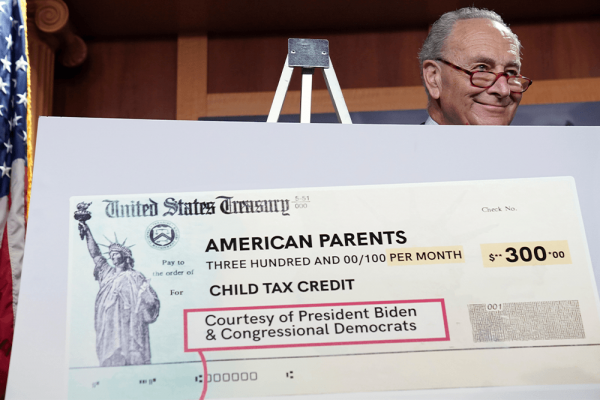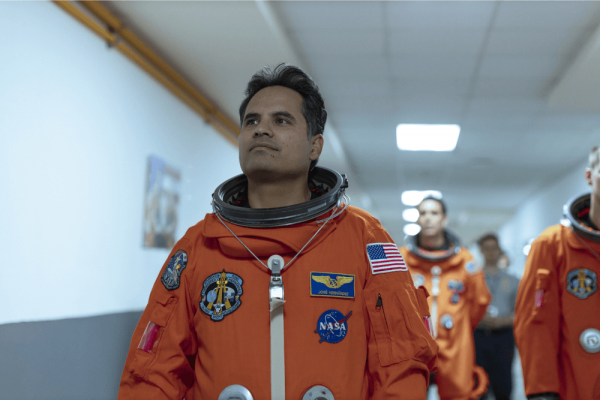As I looked closer, I realized these weren’t just funny stories about the songwriter of “Awesome God.” Mullins wasn’t just witty among friends. He also used his humor as a tool to share his sharp criticisms, deep contemplations, and controversial ideas with largely evangelical audiences that were increasingly looking for Christian music to be a space that confirmed their assumptions.
During the pandemic, something peculiar happened: The child poverty rate in the U.S. fell, reaching an historic low of 5.2 percent in 2021. The decline was largely a result of the federal spending in social safety nets like Medicaid, SNAP, and the Child Tax Credit, as well as direct payments to families. Anti-poverty advocates celebrated the win.
Former President Donald Trump and Florida Governor Ron DeSantis made their cases to evangelical voters who gathered in Washington, D.C., for a pair of events on Friday, seeking an edge with a voting bloc likely to play a pivotal role in selecting a 2024 presidential nominee.
“No god, no gods, no spirits,” declares Detective Hercule Poirot in A Haunting in Venice. “It’s only us.” Throughout the film, in theaters now, Poirot (Kenneth Branagh) points his ostentatious mustache at all manner of explanations to discredit the spiritualist Mrs. Reynolds (Michelle Yeoh) and her apparent powers of divination. But Poirot doesn’t just want to expose the alleged artifice of Mrs. Reynolds’ powers; he wants to reject any and all higher power. In a world so full of injustice, Poirot reasons, how could a just and powerful God exist?
This year marks 60 years since the death of W.E.B. Du Bois, who lived from 1868-1963. We remember the late sociologist, educator, socialist activist, NAACP co-founder, and revolutionary academic for his work in resisting racial capitalism in the classroom, the streets, and the Black church.
I first encountered Du Bois in middle school in an old biography — its pages falling apart, its cover hanging on by a thread. The writing was just dense enough to offer me a challenge but not so difficult that I couldn’t understand it. Ultimately, it provided the intellectual and vocational awakening I needed.
Five former Memphis policemen were charged in federal court on Tuesday with violating the civil rights of Black motorist Tyre Nichols by beating him to death after a traffic stop and engaging in a cover-up.
Lab-grown meat can be labeled kosher and halal as long as its cells are derived in methods compliant with religious standards, according to two panels of experts commissioned by the nascent industry.
As more people leave religious institutions, or never join them in the first place, it’s easy to assume this demographic will command more influence. But as a sociologist who studies politics and religion, I wanted to know whether there was evidence that this religious change could actually make a strong political impact.
There are reasons to be skeptical of unaffiliated Americans’ power at the ballot box. Religious institutions have long been key for mobilizing voters, both on the left and the right. Religiously unaffiliated people tend to be younger, and younger people tend to vote less often. What’s more, exit polls from recent elections show the religiously unaffiliated may be a smaller percentage of voters than of the general population.
A Million Miles Away feels like a story too good to be true. But the new film is the true story of José Hernandéz (Michael Peña), a migrant farmworker who became a NASA astronaut.
Yet a common assumption is that chaplains themselves must be grounded in a religious tradition. After all, how can you be a religious leader without religion?
In reality, a growing number of chaplains are nonreligious: people who identify as atheist, agnostic, humanist, or “spiritual but not religious.” I am a sociologist and research manager at Brandeis University’s Chaplaincy Innovation Lab, where our team researches and supports chaplains of all faiths, including those from nonreligious backgrounds. Our current research has focused on learning from 21 nonreligious chaplains about their experiences.









